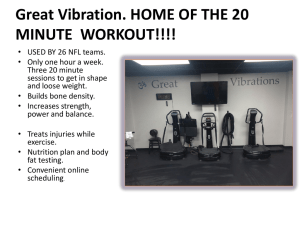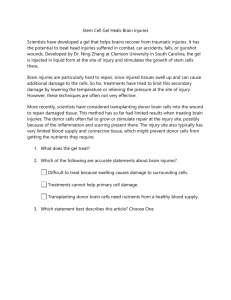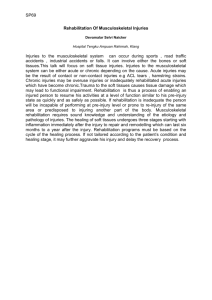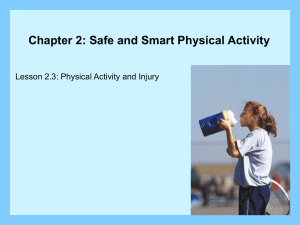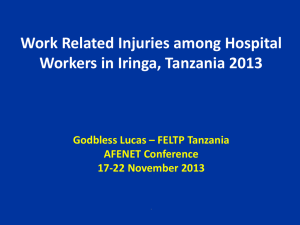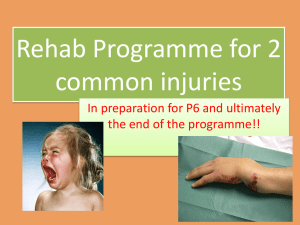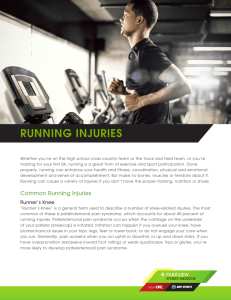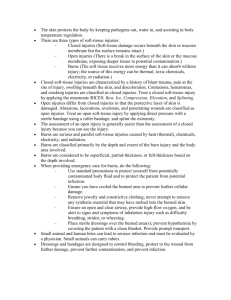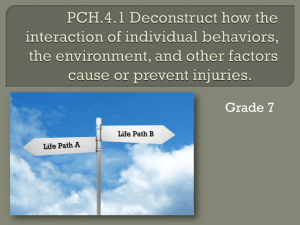Unit 2a Physical Activity and Injury
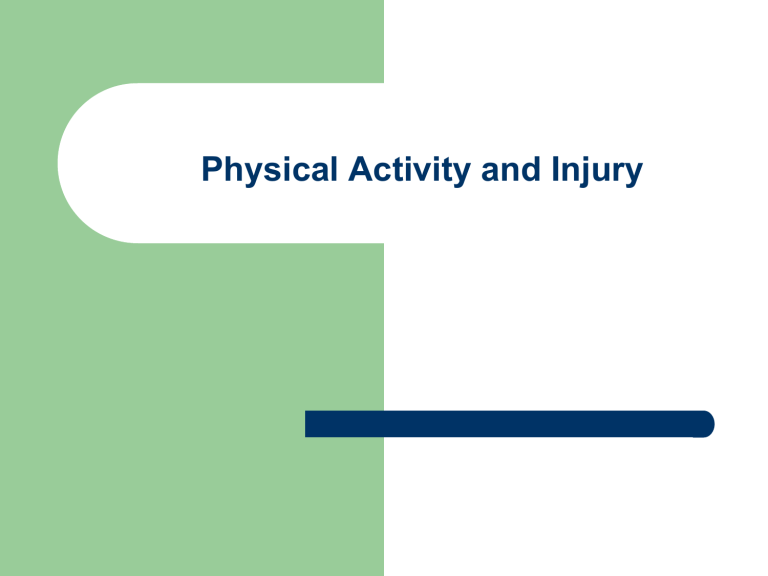
Physical Activity and Injury
OBJECTIVES:
List and describe some activity related physical injuries.
List some guidelines for preventing injuries during physical activity.
Explain how to apply the RICE formula to the treatment of physical injuries.
Identify different types of risky exercises.
VOCABULARY YOU SHOULD KNOW:
Biomechanical principles
Ligament
Micro Trauma
Overuse injury
Side Stitch
Tendon
COMMON INJURIES
?? What are they in your sport??
strains
blisters
sprains
cuts
bruises
dislocations fractures
COMMON INJURIES
skin
feet
Leg muscles
ankles
knees
OVERUSE INJURY
Caused by repetitive movement.
Blister most common
Shinsplints
Runners Heel
COMMON INJURIES
“Side Stitch” Pain in lower abdomen due to vigorous activity.
Press heel of hand while bending forward or backward.
Microtrauma:
Micro= small trauma = injury:
Often won’t show up on x-ray. “overuse”
PREVENTING INJURIES
How many bones?
Held together how???
Muscle contraction = body movement.
Biomechanical principles=
1) Don’t force in direction not designed to go!
Muscle contraction =
TENDONS VS LIGAMENTS
Preventing Injuries
Biomechanical principles=
1) Don’t force in direction not designed to go!
2) Movement shouldn’t over stress bones, tendons, ligaments or muscles.
3) Balance muscle development. (“antagonistic”)
PREVENTION GUIDELINES:
1) Start Slowly
2) Listen to body
3) Warm-up/Cool downs
4) Be Fit
5) Moderation
6) Dress Appropriately
R.I.C.E
R
= REST
I
= ICE
C
= COMPRESSION
E
= ELEVATION
RISKY EXERCISES/MOVEMENTS
Goes against biomechanical principles
Hyperflexion vs hyperextension
Hyper = “too much”
Flexion = “to bend”
Hyperflexion is using joints in a way not intended.
RISKY EXERCISES TO
AVOID
AVOID:
HyperEXTENSION
EXERCISES TO AVOID:
Twisting motion: Friction = wear n tear on joints/tissue.
?? REVIEW QUESTIONS ??
1) What are some exercise related physical injuries?
2) How can you prevent injuries during physical activity?
3) How can the RICE formula be used to treat physical injuries?
4) What are some different types of risky exercises?


